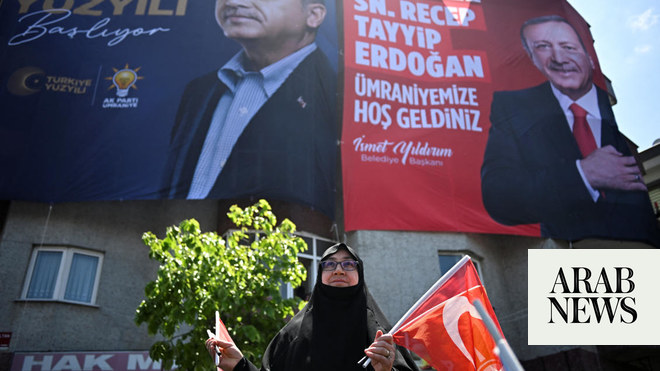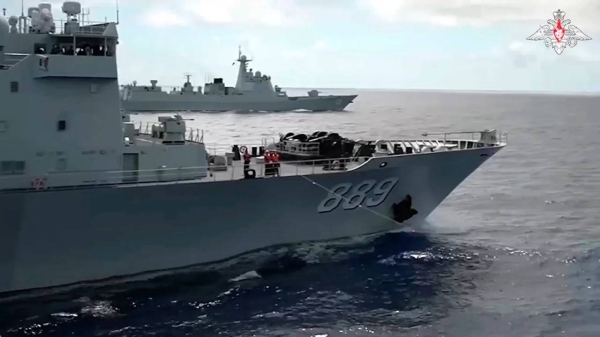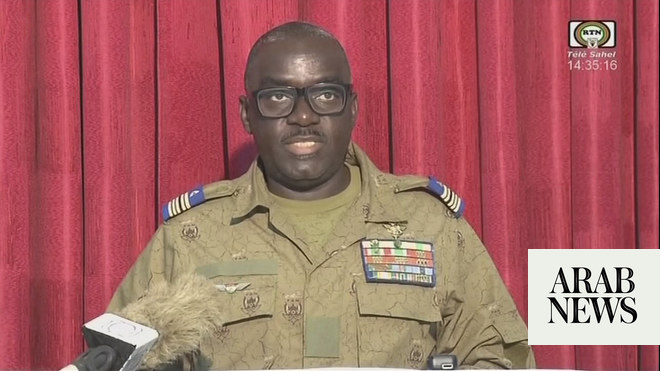
Turkish envoy summoned as anger erupts over Syrian offensive, terror claims
ANKARA: Turkish President Recep Tayyip Erdogan faces a hostile reception from fellow NATO members at the alliance’s summit this week in London, analysts told Arab News on Saturday.
Days before a NATO summit in London on Dec. 3-4, the Turkish and French presidents have engaged in a battle of words.
With Turkey allegedly testing the Russian-made S-400 air defense system, and reportedly planning to block a NATO project to defend Poland and the Baltics, France has criticized Ankara, saying it cannot expect solidarity from allies over any offensive against Syrian Kurdish forces in Syria.
French President Emmanuel Macron said NATO was “brain dead” for permitting Turkey’s military incursion into northern Syria.
In turn, Turkish President Recep Tayyip Erdogan accused Macron himself of being “brain dead,” and a “sponsor of terrorism” after France hosted Jihane Ahmed of the Kurdish-led Syrian Democratic Forces, which Turkey views as a terror group.
On Friday, Erdogan told Macron “you should check whether you are brain dead first” over the latter’s recent comments about NATO’s inability to prevent Turkey’s Syria incursion. Macron believe his remarks about NATO were a “wake-up call” and he refused to apologize.
Following harsh comments from the Turkish side, France summoned Turkey’s ambassador to Paris to protest over what it viewed as an “insult” rather than a “statement.”
A French presidential adviser also criticized Turkey, claiming “Ankara cannot take the defense plans of Poland and the Baltic countries hostage.”
The exchange of criticism reflects the tension between the two NATO allies before the approaching meeting where they are expected to hold a four-way summit, along with German and British leaders, to discuss the fate of Syria.
According to a recent Reuters report, Ankara has one condition to back the NATO plan: Securing more political support from the alliance over its fight against Syrian Kurdish YPG militia in northern Syria.
French intellectuals also reacted harshly to Erdogan’s remarks about Macron.
“Macron ‘mentally ill’? Indeed, from the point of view of Erdogan, defending the Kurds, leaving its opponents at liberty, respect democracy, be faithful to its international commitments and humanitarian law, it’s pure madness,” French philosopher Bernard-Henri Levy tweeted.
On his side, Roger Karoutchi, a former French minister who now represents Les Republicans in the French senate, said: “For Erdogan, Macron is in a ‘brain dead state.’ The insult insults only the one who utters it. The Turkish ambassador in Paris is summoned, but we must remember our ambassador in Ankara and put a definitive end to the discussions about Turkey’s entry into the EU.”
Bill Park, a visiting research fellow at King’s College London, said Macron is not alone in NATO in criticizing Turkey’s actions in Syria, and he did not attack Erdogan in person.
“His wider criticism of NATO was not aimed at Turkey, and has provoked a negative reaction from many of France’s NATO allies. Turkey’s reaction to Macron and the personalized ‘brain dead’ comment is way over the top,” he told Arab News.
“Ankara thinks it can extend its suppression of criticism at home to a suppression of criticism from abroad. It cannot. With its actions in Syria, in the eastern Mediterranean, in its agreement with Libya on maritime boundaries that threatens Greece, in its S-400 purchase and wider relationship with Russia, in its threats to weaponize refugees, its arrest of Germany’s lawyer, Turkey is losing and has lost sympathy in Europe,” he added.
For Park, the war of words will blow over, but the underlying European discomfort with Erdogan will not.
Samim Akgonul, a Turkish political scientist and director of the Turkish studies department of Strasbourg University in France, said that among populist powers like France and Turkey, the “war of words” had become a tool to measure the reaction of the “other.”
“Macron is willing to gauge France’s power on the decision-making process of NATO in a possible post-Trump era. That is why the Syrian conflict is a good pretext,” he told Arab News.
“On the other hand, insulting foreign leaders became a well-known characteristic of foreign policy making of the Turkish president. Other leaders know it and they react accordingly, with disinterest or soft reaction. That is the case for the recent insult, too, where Erdogan insinuated that Macron was young, experienced, naive and brainless,” he added.
To what extent this latest escalation between the two leaders translates into the Syria- focused discussions between Ankara and Paris remains to be seen.
Akgonul said: “NATO members, including France, are witnessing their incapacity to be taken under consideration in the Syrian front by three actors, namely the US, Russia and Turkey, simply because they are paralyzed by Turkey’s threats relating to refugees but also to foreign fighters with European citizenship.”
Turkey will soon deport another 11 French citizens suspected of Daesh links.
Akgonul believes that during London summit, Ankara’s threats and cynicism will again prevail, and continental Europe will again lower its head.
“Otherwise, Macron will again hear similar insults and threats and will be obliged to swallow them,” he said.












